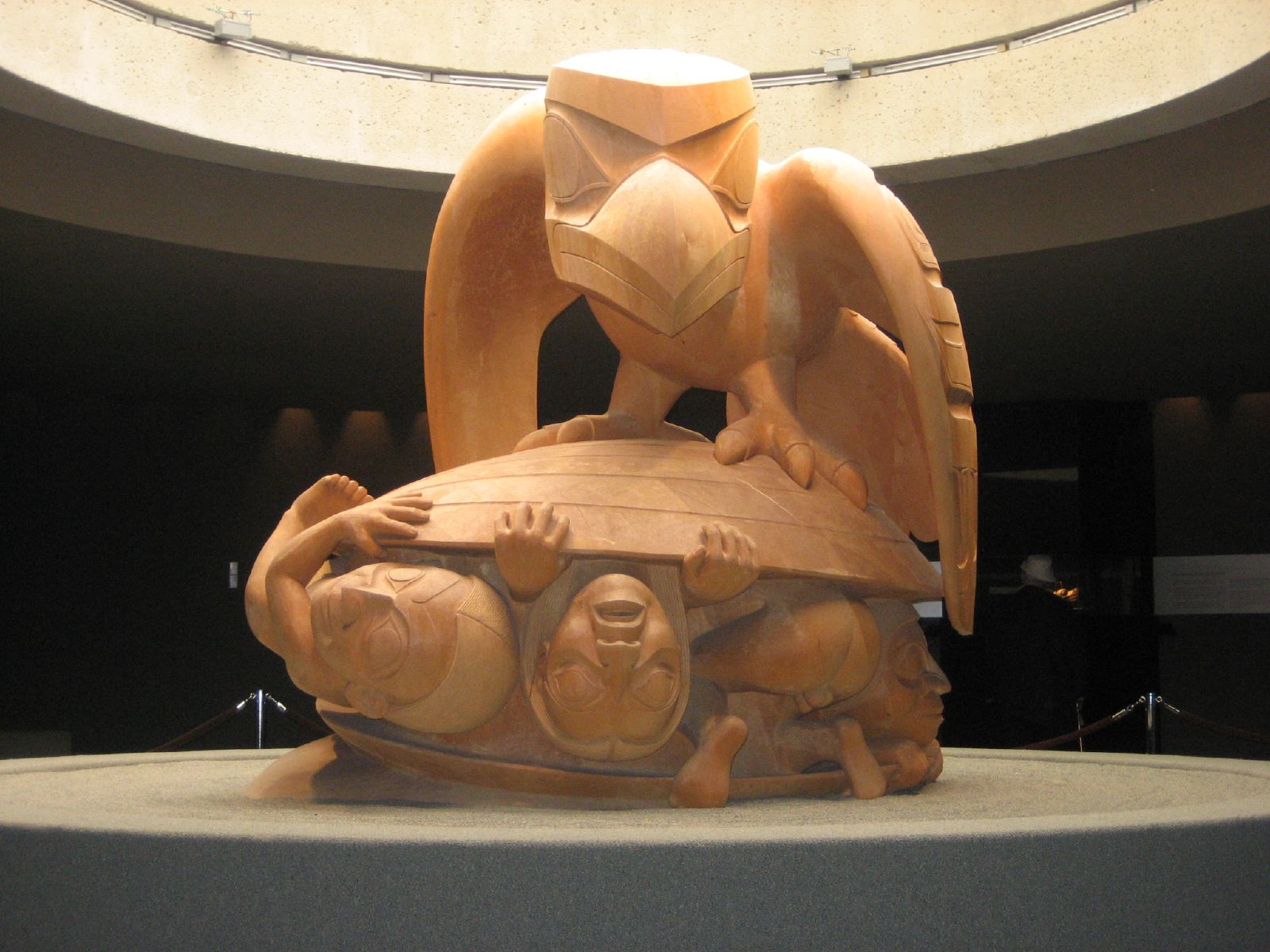|
Ta'xet
Ta'xet is the Haida god of violent death. He is considered to be one half of a duality; his counterpart is Tia TIA or Tia may refer to: Aviation * Tampa International Airport, US, IATA code TPA * Texas International Airlines, US, ICAO code * Tirana International Airport Nënë Tereza, Albania, IATA code * Trans International Airlines, former U.S. airl ..., the goddess of peaceful death. Folklore According to Haidan folklore, the raven stole the moon from Ta'xet during earth's creation and placed it in the sky to nourish humanity. If humanity was to ever displease the raven by altering the earth's environment, he will return the moon to Ta'xet and stop protecting humanity from Ta'xet's wrath. In folklore, it is also said that the souls of those who meet a violent death go to Ta'xet's house without a warning, while Tia leaves signs before she takes her victims. References Gods of the indigenous peoples of North America Death gods Haida gods {{NorthAm-myth-stub ... [...More Info...] [...Related Items...] OR: [Wikipedia] [Google] [Baidu] |
Haida Mythology
The Haida are one of the indigenous peoples of the Pacific Northwest Coast of North America. Their national territories lie along the west coast of Canada and include parts of south east Alaska. Haida mythology is an indigenous religion that can be described as a nature religion, drawing on the natural world, seasonal patterns, events and objects for questions that the Haida pantheon provides explanations for. Haida mythology is also considered animistic for the breadth of the Haida pantheon in imbuing daily events with . There are innumerable Haida supernatural beings, or , including prominent animal crests, wind directions, and legendary ancestors. John R. Swanton, while documenting Haida beliefs as part of the Jesup North Pacific Expedition recorded that the highest being in all Haida mythology and the one who gave power to the was , translated as 'Power-of-the-Shining-Heavens'. Some have the ability to transform between animal and human forms while others do not. In the art c ... [...More Info...] [...Related Items...] OR: [Wikipedia] [Google] [Baidu] |
Tia (goddess)
Tia is the goddess of peaceful death in the Haida mythology. She is considered to be part of a duality. Her counterpart is Ta'xet Ta'xet is the Haida god of violent death. He is considered to be one half of a duality; his counterpart is Tia, the goddess of peaceful death. Folklore According to Haidan folklore, the raven stole the moon from Ta'xet during earth's creation an ..., the Haida God of violent death. References Goddesses of the indigenous peoples of North America Death goddesses Haida goddesses {{NorthAm-myth-stub ... [...More Info...] [...Related Items...] OR: [Wikipedia] [Google] [Baidu] |
Gods Of The Indigenous Peoples Of North America
A deity or god is a supernatural being who is considered divine or sacred. The ''Oxford Dictionary of English'' defines deity as a god or goddess, or anything revered as divine. C. Scott Littleton defines a deity as "a being with powers greater than those of ordinary humans, but who interacts with humans, positively or negatively, in ways that carry humans to new levels of consciousness, beyond the grounded preoccupations of ordinary life". Religions can be categorized by how many deities they worship. Monotheistic religions accept only one deity (predominantly referred to as "God"), whereas polytheistic religions accept multiple deities. Henotheistic religions accept one supreme deity without denying other deities, considering them as aspects of the same divine principle. Nontheistic religions deny any supreme eternal creator deity, but may accept a pantheon of deities which live, die and may be reborn like any other being. Although most monotheistic religions traditionally e ... [...More Info...] [...Related Items...] OR: [Wikipedia] [Google] [Baidu] |
Death Gods
Death is the irreversible cessation of all biological functions that sustain an organism. For organisms with a brain, death can also be defined as the irreversible cessation of functioning of the whole brain, including brainstem, and brain death is sometimes used as a legal definition of death. The remains of a former organism normally begin to decompose shortly after death. Death is an inevitable process that eventually occurs in almost all organisms. Death is generally applied to whole organisms; the similar process seen in individual components of an organism, such as cells or tissues, is necrosis. Something that is not considered an organism, such as a virus, can be physically destroyed but is not said to die. As of the early 21st century, over 150,000 humans die each day, with ageing being by far the most common cause of death. Many cultures and religions have the idea of an afterlife, and also may hold the idea of judgement of good and bad deeds in one's life (heaven, ... [...More Info...] [...Related Items...] OR: [Wikipedia] [Google] [Baidu] |

